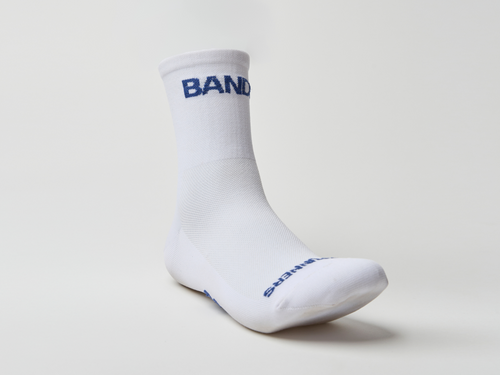If you’ve been living under a technological rock for the last week or two, you may have missed the launch of ChatGPT – a messaging tool whereby a human can request a variety of tasks to artificial intelligence technology, which will in turn answer the question you had, or write a poem for you, or correct the sentence that was grammatically incorrect, or generate the e-mail template that you had to write for work in a pinch. The possibilities are eerily endless.
ChatGPT is the second major consumer-facing product from OpenAI (DALL-E, which generates images based on prompts was the first - every image throughout this article was generated using prompts I fed into DALL-E), which is part research laboratory, part for-profit corporation and part non-profit entity, all with the stated goal to “promote and develop friendly AI in a way that benefits humanity as a whole.”
The company is founded by Sam Altman, previously the boy wonder leading YCombinator, the premiere startup incubator in Silicon Valley. It's also backed by the biggest names in tech (Elon Musk, Microsoft, the founders of Paypal and Linkedin, etc. etc., insert more world-shaping tech figures).
The program uses the “GPT-3.5 language technology” that OpenAI previously created, which was then trained and optimized on top of a massive amount of text data that was fed into the program. To quickly demonstrate ChatGPT’s power, I first fed it the prompt “add some humor” to the first paragraph in this article. It ended it with the following:
"The possibilities are eerily endless, just like the amount of procrastination you can achieve by asking ChatGPT to do all your work for you. Just don’t be surprised when your boss asks to meet the “AI assistant” you’ve been bragging about.”
Ok, so it’s no Jerry Seinfeld, but the better you get at feeding it more descriptive demands, the better the answers get. Here’s the output when I instead prompted it to add “dark, weird humor” to the opening paragraph:
“The possibilities are eerily endless, just like the impending doom of the singularity. But don’t worry, ChatGPT will be there to comfort you as the world burns and the machines rise up against their human creators. It’ll even write a nice farewell poem for you. Sweet dreams!”
That’s about as dark, weird and self-aware that humor gets, especially when you consider it’s basically foreshadowing the result of the evolution of itself. Yeesh.
But I digress. As the CEO of Bandit, it’s much more relevant to ponder what this might mean for the world of running. To do so, I asked ChatGPT five running related questions and then quickly pondered the implication. This is by no means a scientific analysis or a prediction of the change that might come about in the running world, but more so a general thought experiment with some of my very quick, and not necessarily deep commentary.
Away we go with the questions/prompts and their corresponding answers...
Prompt 1: Write me a week-by-week marathon training plan for a beginner runner.

My Take: You can’t replace a good coach, but a good coach can harness new training ideas and formats using this technology. Clearly this output is very surface level – regardless, running coaches should play around with it to add some descriptiveness to the prompts to see if it could be at all useful. Many jobs in the future will be supplemented and not replaced with this tech. It will allow you to work faster and more efficiently so that you can optimally focus on what really matters - 1:1 interaction with your clients. Tailored programs for serious athletes cannot (currently) be replicated, but websites that offer generic training programs should be scared.

Prompt 2: Write me an e-mail about a Monday-only, 10% off sitewide flash sale for my performance running apparel company using subtle humor.

My Take: For brands that don’t care about having a very distinctive voice, or when they have a very simple message to get across in an e-mail, ChatGPT could all but replace your e-mail copywriter… like today. It’s scary. That being said, it’s tough to be successful as a brand without a distinctive voice or point of view, so the bones of an e-mail might be here, but it could/should be finessed with someone speaking the particular language of a brand. Overall, the copywriting industry has been noted as the one that will be shook up most in the very short-term by this technology.

Prompt 3: What should I wear when running in 40-degree weather?

My Take: Basic running questions that running media sites rely on for traffic via SEO-optimized content will become basically irrelevant. If ChatGPT is known to pull together and aggregate the best average answer to basic questions like this, it will not only be a very hairy thorn in the side of running websites, but also the behemoth that is Google. Overall, educationally-based content and media in general are in for a rude awakening.

Prompt 4: Can you give me a meal-by-meal plan for what I should eat the day before a marathon?

My take: If you somehow got to the day before your first marathon and hadn’t thought ahead to optimizing your pre-race day nutrition, this would probably be better than simply winging it with no plan (note: I am not a nutritionist, so legally, I could be completely wrong here). Obviously, I wouldn’t count on it for my entire marathon fueling protocol. Nutrition is a field with so much complexity, especially at the individual level, that it would take a lot more than a simple prompt from a chatbot to best a customized plan given someone’s body type, dietary restrictions, etc. The more complex and the more individually tailored something needs to be, the longer it will take before AI has a solution or an alternative.

Prompt 5: Name all of the performance running brands based in New York City.

My Take: ChatGPT’s model stopped ingesting data in 2021. It also can’t browse the internet (for now). So for the time being, it doesn’t know Bandit Running, and therefore all of my previous musings should be deemed irrelevant and obsolete. Kidding about that last part. But for this particular technology, it does for the time being, have some very real limits.
Important to know, ChatGPT was the fastest technology to acquire 1 million users in history. It took them just 5 days – for Instagram, it took 2.5 months, and Facebook about 10 months. There simply isn’t a scenario where OpenAI doesn’t begin feeding this beast constant, up-to-date data, which will in turn accelerate its effectiveness and the total use cases that the program will be able to execute against. Scary.
That being said, there’s one thing ChatGPT can’t replace in the running world, and that’s… running itself. Everything else though is unfortunately up for grabs.
BONUS PROMPT: Write the final paragraph to an essay describing the effects that AI will have on the sport of running.














